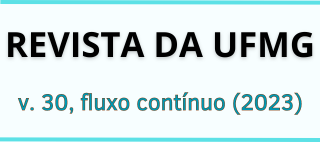A expansão artificial da inteligência humana
DOI:
https://doi.org/10.35699/2965-6931.2023.48125Palavras-chave:
inteligência artificial, hype, Zeitgeist, divulgação científicaResumo
De poucas décadas para cá, a Inteligência Artificial viu-se transformada em um hype. Não é para menos, pois os efeitos e consequências de suas aplicações em tudo que diz respeito ao humano é indiscutível. Infelizmente, entretanto, quando um tema se torna moeda corrente de publicações nem sempre bem fundamentadas, ele fica submetido a um imbróglio de controvérsias, mal-entendidos e desinformação, justamente o que vem acontecendo com a IA. As razões para isso são muitas. Este artigo pretende colocar em discussão algumas dessas razões, com ênfase no Zeitgeist tanto filosófico quanto tecnocientífico em que a questão da inteligência se acha envolvida.
Referências
BOSTROM, Nick. Entrevista concedida a Martin Ford. In Ford, Martin (ed.). Architects of intelligence. The truth about AI from the people building it. Birmingham: Packt Publishing, p. 97-116, 2018.
BRIDLE, James. Maneiras de ser. A busca por uma inteligência planetária. Trad. Daniel Galera. São Paulo: Todavia, 2023.
BRYANT, Levy; SRNICEK, Nick; HARMAN, Graham. Toward a Speculative Philosophy. In The Speculative Turn: Continental Materialism and Realism, Levi Bryant, Nick Srnicek, and Graham Harman (eds.). Melbourne: re.press, 2011.
CRUTZEN, Paul; STOERMER, Eugene F. The “anthropocene”. IGBP Newsletter, n. 41, p. 17-18, May 2000. Disponível em: http://www.igbp.net/download/18.316f18321323470177580001401/NL41.pdf. Acesso: 10 ab, 2022.
GRAHAM, Harman. Quentin Meillassoux. Philosophy in the making. Edinburgh University Press. 2011.
GRUSIN, Richard. Introduction. In Grusin, R. (ed.). The nonhuman turn. Minneapolis: The University of Minnesota Press, p. vii-xxix, 2015.
HARAWAY, Donna. Manifesto ciborgue: ciência, tecnologia e feminismo-socialista no final do século XX. In Silva, Tomaz Tadeu (org, trad.). Antropologia do ciborgue. Belo Horizonte: Autêntica, p. 37-130, (1985) 2000.
KOLLER, Daphne. Entrevista concedida a Martin Ford. In Ford, Martin (ed.) Architects of intelligence. The truth about AI from the people building it. Birmingham: Packt Publishing, p. 387-403, 2018.
LATOUR, Bruno. Jamais fomos modernos. Ensaio de antropologia simétrica. Trad. de Carlos Irineu da Costa. Rio de Janeiro: Ed. 34, 1994a.
On technical mediation: Philosophy, sociology, genealogy. Common Knowledge, 3 (2), p. 29-64, 1994b.
On actor-network theory: a few clarifications. Soziale Welt, p. 369-381, 1996.
On recalling ANT. In Law, J; Hassard, J. (eds.) Actor-network theory and after. Oxford: Blackwell Publishers, p. 15-26, 1998.
LECUN, Yann. Entrevista concedida a Martin Ford. In Ford, Martin (ed.). Architects of intelligence. The truth about AI from the people building it. Birmingham: Packt Publishing, p. 119-142, 2018.
LEMOS, André. A comunicação das coisas. Teoria ator-rede e cibercultura. São Paulo: Annablume, 2013.
MANCUSO, Stefano. A revolução das plantas. São Paulo: Ubu, 2019.
RUS, Daniela. Entrevista concedida a Martin Ford. In Ford, Martin (ed.). Architects of intelligence. The truth about AI from the people building it. Birmingham: Packt Publishing, p. 253-268, 2018.
RUSSEL, Stuart J. Entrevista concedida a Martin Ford. In Ford, Martin (ed.) Architects of intelligence. The truth about AI from the people building it. Birmingham: Packt Publishing, p. 39-68, 2018.
Neo humano. A sétima revolução cognitiva do Sapiens. São Paulo: Paulus, 2022.
A inteligência artificial é inteligente? São Paulo: Almedina. Edições 70, 2023.
TEIXEIRA, João de Fernandes. Mentes e máquinas. Uma introdução à ciência cognitiva. Porto Alegre: Artes Médicas, 1998.
TENENBAUM, Joshua. Entrevista concedida a Martin Ford. In Ford, Martin (ed.). Architects of intelligence. The truth about AI from the people building it. Birmingham: Packt Publishing, p. 473-491, 2018.




